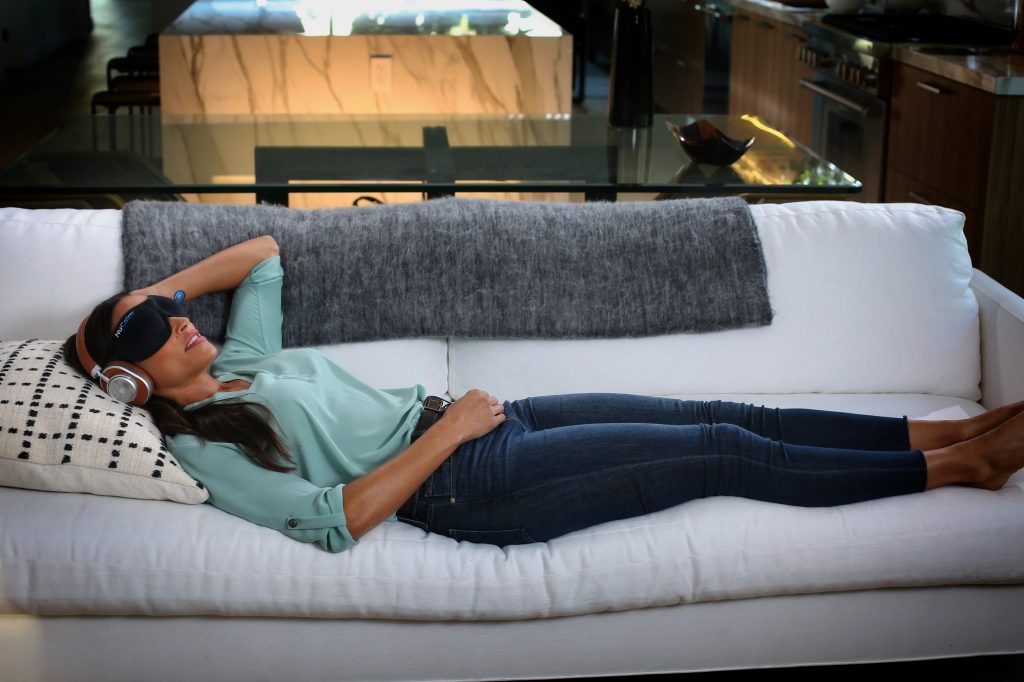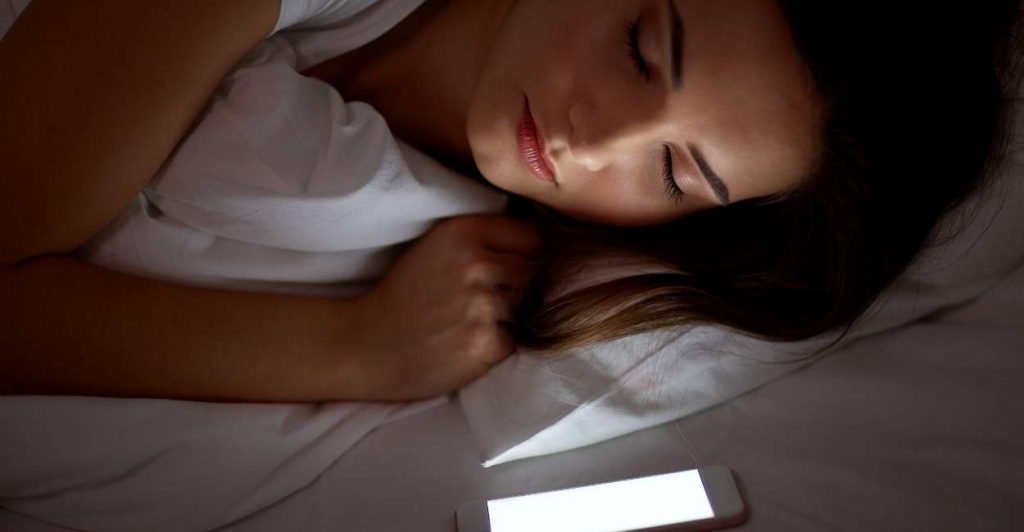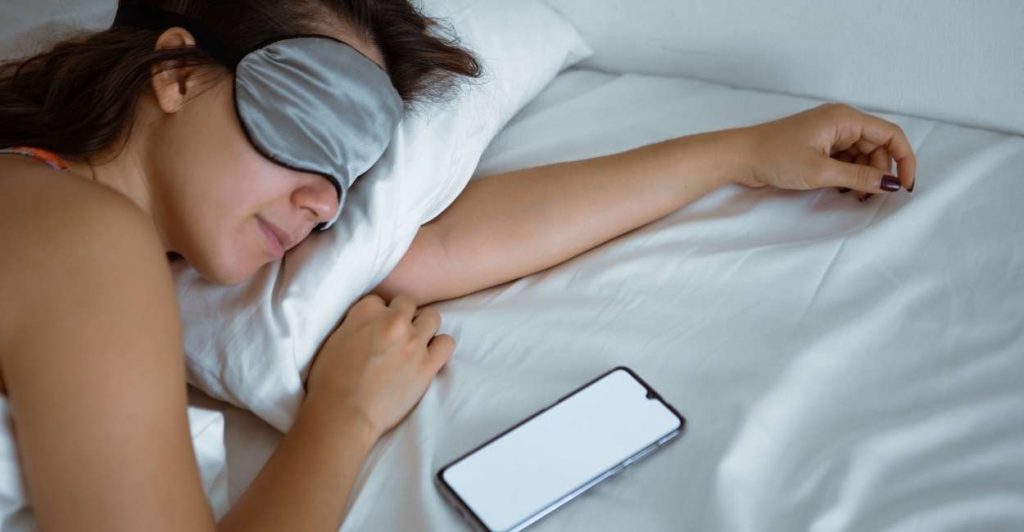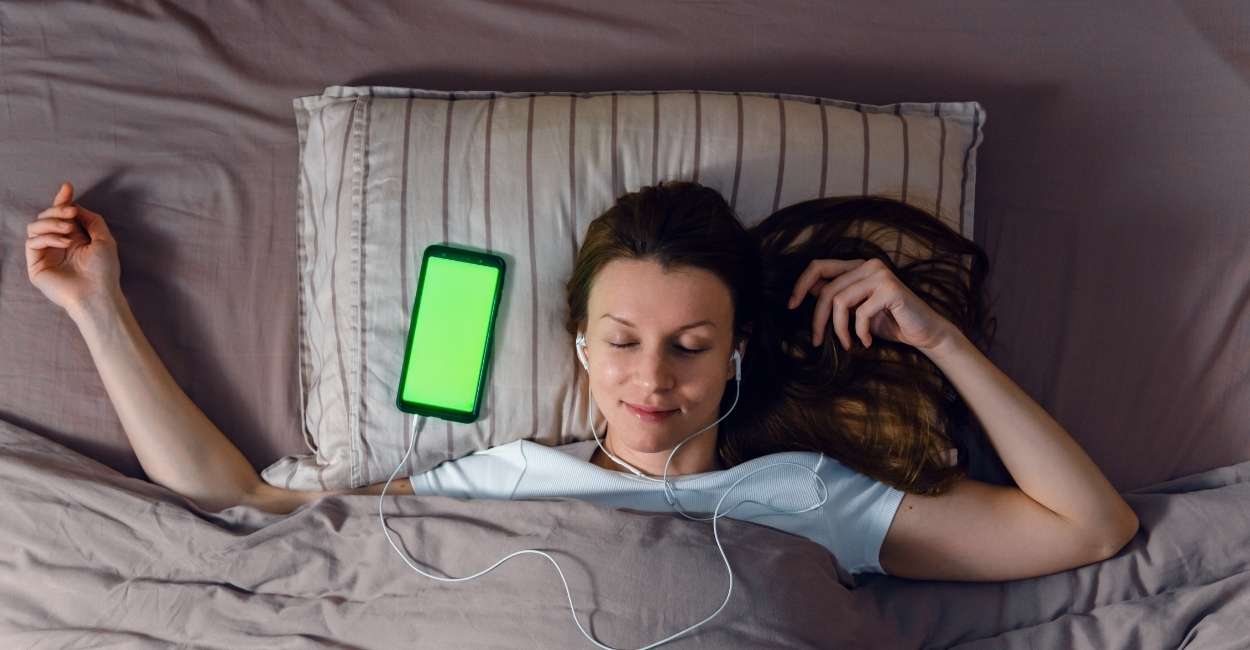In the current era, especially after the covid-19 fiasco, everything is digital. Whether you want to get a train ticket, order food (even in dine-in restaurants), or pay at the convenience store.
However, did you know that you can even improve your sleep with the help of apps? Sleep apps are all the rage and have helped millions of people get back on their sleeping track.
NOTE
We have enlisted our recommended apps for sleep in this guide, here.
So, let’s see if you want to join them too…
What are sleep apps?
Different sleep apps provide different features to help you fall asleep. Many tools offer relaxing sounds of nature, guided meditation, and white noise. You can listen to those and fall asleep during bedtime.
Some sleep apps collect data as you sleep and work as an alarm clock when your sleep must be complete. They might even track your movements during sleep with sensory tools, record any sound, and even give deeper insights into your sleep cycle.
Though there is insufficient data on the benefits of sleep apps, many people incorporate these tools into their daily life as it shows how healthy their life is or how much they need to improve them.
However, in the current market, many applications will claim themselves as sleep apps, but hardly any of them live up to their name.
Why should you use apps for sleep?
Some people might frown at the idea of using gadgets and apps to fall asleep. They may even preach that gadgets must be kept away from your bedroom because of radiation.
But honestly, in this day and age, we face much larger amounts of radiation even without smartphones. So, let’s embrace what the new-age miracle brings here…
1. You can measure the needed improvement in sleep
Since lack of sleep can be the reason behind many physical, psychological, and emotional concerns, rectifying your sleep patterns can do wonders for you. However, how will you understand what needs improvement?
Some sleep apps measure important info while you sleep soundly. They ask you to log in with your age, gender, weight, and other basic details.
They record your in-sleep movements and breathing patterns and compare them with their pre-written algorithm of mass of similar databases (age, gender, weight, etc.).
These apps find easy-to-understand info based on complicated data to help you improve your sleep.
2. You’ll know exactly which part of your sleep needs the tweak
Based on your regular sleeping habits, your sleep apps will set an average baseline or trend for your sleep. With the trends, the apps find out what sleeping issues you have.
Whether you take a long time to fall asleep, you wake frequently at night, or any other concern, the apps track them and some even offer you innovative ideas to beat the issues.
Some apps even allow you to work towards your personalized goals.
3. It even connects your daytime activities with your sleep
If you have afternoon late after 7 pm, work on your laptop till late night, or scroll through your tablet on the bed before sleeping, all of these obviously impact your sleep. However, other factors like timing and intensity of exercise and stress also disrupt sleep.
Some sleep apps ask you to input your entire day’s worth of activities with timing. With the data, the apps find out the reason behind your sleep issues and offer you tips to improve the quality of sleep.
4. It helps you find out the perfect amount of sleep for you
Though 8 hours of sleep is necessary for an average human being, some people feel refreshed within 5 hours while others feel drowsy even after 9 hours of sleep.
Some sleep apps will ask you to enter how long you slept and how refreshed or drowsy you feel in their database to find your perfect sleep schedule. It might even suggest a suitable bedtime to get optimal sleep.
5. It promotes sleeping with innovative methods
If you ever used an app for sleep sounds, you’ll know exactly how they prepare you for bed with soothing sounds and cognitive exercises.
You can calm your pulse rate with a choice of your audio starting from sounds of the fire flickering, and raindrops on the glass window, to guided meditation and breathing exercises.
You might even find stories read out in a relaxing way. For instance, with time the storyteller’s voice slowly fades out which induces a sleepy feeling.
The soothing audios may also work as a panic treatment. Some even have special music to calm your breathing and pulse rate.
6. It spreads awareness about quality sleep
We all know sleep is important, but how many actually know why? Even if you know a reason or two, that’s never the complete story. Some apps offer detailed informational videos on how good sleep helps a human body or its lack can impact you.
The awareness helps you understand what your body needs and what you’ll receive if you care for it better. A little awareness can motivate you a lot to improve your sleep. The lessons on sleep science help you connect better with your body.
7. It might even prompt you to take breaks
If you work at a stretch without any break, you’ll stress yourself much more and will have a hard time catching the shut-eye. Some apps for sleep might even send you notifications to take breaks in between the day and reduce your stress levels.
Some of the best apps to improve sleep also send notifications an hour or so before your bedtime to remind you to prepare for bed.
Still, think the sleep apps are a myth? Let’s show you the reality here…
Do sleep apps work?
Sleep apps alone can’t bring the needed change in your life if you’re not ready. These are only tools and can do nothing if you don’t have the commitment… otherwise, AI would have been ruling the world now!
There are many benefits of sleep-tracking apps, but the ones with motion-sensing technology can’t always pick the right data.
Your body becomes relaxed during deep sleep and goes to temporary paralysis in REM sleep. But while dreaming, the motion-sensing technology metric becomes indefinite.
This is because movement tracking alone isn’t a great way to track sleep.
However, researchers continuously try to improve sleep apps. Currently, many sleep apps already use far more than just motion-sensing tech and provide better info about your sleep.
Are you feeling motivated to use one now? That’s great because I have some tips for that right here…
How to pick the right one?
All sleep apps might not give you the above-mentioned benefits. You might not even need all the benefits, so focus on what you actually need. Answer these questions:
1. Do you feel you go to bed on time?
2. Do you feel well-rested when you wake up?
3. Do you hate waking up some days?
4. Do you fidget for long hours before falling asleep?
5. Do you frequently want to take naps?
6. Do you frequently wake up at night?
7. Do you consider yourself a caffeine addict?
8. Do you feel demotivated at work, home, about your hobbies, or even during workouts?
9. Do you have any trauma?
10. Do you have lots of stress or anxiety issues?
Write down the answers to these and find a suitable app for sleeping based on your requirements. The most popular ones usually offer programs for all of these.
Can’t decide which one to choose? Let’s introduce you to the best apps for sleeping here…
What apps for sleep should you try? – Our Top Recommendations
If you search for a sleep app in your smartphone store right now, you’ll get endless results. However, it’s really hard to know which app really works.
All that tracking and measuring isn’t easy and many apps are full of bugs. So, let me show you the sleep apps that won’t disappoint you, and then the choice is yours!
1. NuCalm
This app provides a variety of programs and challenges that help you achieve your physical and mental health goals. It helps you with an energy boost when you need it instead of resorting to caffeine and naps. Available on: iOS & Android
Why is it on our list?
- It helps you begin your day with NuCalm morning sessions
- Ignite sessions motivate at the beginning of your day
- Afternoon sessions help you pull through instead of lowering your productivity
- DEEP SLEEP sessions help you fall asleep
- Other sessions to relieve stress, anxiety, deep recovery, and even jet lag

2. Bettersleep
This app won the “App of the Day” award on iOS and the “Editor’s Choice” Award on the Android platform.
Why is it on our list?
- Stress reduction programs
- Improves sleep quality with time
- Helps you feel well-rested in the morning
- Offers bedtime stories for adults
- Promotes self-care and wellness activities
- It offers guided meditation

3. Calm
This is the best app for sleep meditation and relaxation with 1.5M+ 5-star reviews. It won Apple’s App of the Year 2017 and BEST of 2018 and Google Play Editor’s Choice 2018.
Why is it on our list?
- They have guided meditation process
- Different music customized for concentration, relaxation, and sleep
- Video tutorials about gentle stretching and mindful movement
- They offer audio programs from famous mindfulness experts
- Nature scenery and sounds for relaxation, sleeping, and concentration
- Anxiety and stress reduction programs
- Self-improvement programs
- Final Statement

Sleep apps are still a topic of controversy because of the lack of research. However, many people have received desired results after using the apps.
It might be their inner motivation to improve their lifestyle along with the efforts behind the apps. Or, it might be just their blind faith or completely the magic of the apps.
If you feel unsure about these, why don’t you try out a sleep app? Find out whether it can really work for you. However, remember to follow the needed programs to get the best effects.
Who knows, you might just amaze yourself with the changes in your sleep schedule!

